Physics

Educators and Parents, Sign Up for The Cheat Sheet
Weekly updates to help you use Science News Explores in the learning environment
Thank you for signing up!
There was a problem signing you up.
-
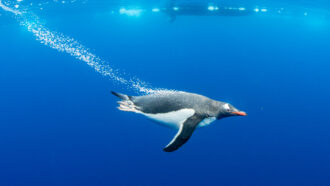 Physics
Physics‘Feathering’ helps explain Gentoos’ record-breaking swim speed
Videos and computer analyses reveal the secrets of the penguins’ superspeed. The results could inspire future underwater vehicles.
By Sarah Wells -
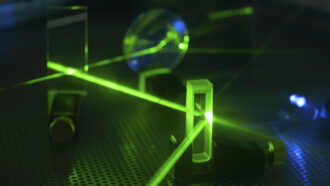 Physics
PhysicsEfforts to create ultrafast light pulses win 2023 physics Nobel
Pierre Agostini, Ferenc Krausz and Anne L’Huillier won the prize for creating light bursts that last billionths of a billionth of a second.
By Emily Conover and James R. Riordon -
 Chemistry
ChemistryScientists Say: Rare earth element
Rare earth elements aren’t all that rare — but skyrocketing demand for these metals makes them precious.
-
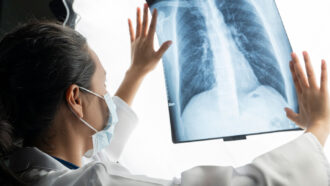 Physics
PhysicsScientists Say: X-ray
X-rays are a type of light that doctors use to image the inside of the body. Astronomers use X-rays to explore the cosmos.
-
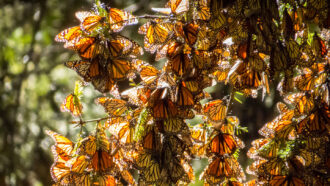 Animals
AnimalsAnalyze This: White wing spots may help monarch butterflies fly far
Monarchs with more white on their wings are more successful migrants, new research shows
-
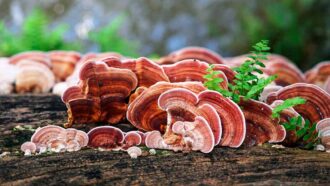 Materials Science
Materials ScienceMade from fungi, this vegan leather can self-heal holes or rips
If made under gentle conditions, leather formed from the “roots” of mushrooms can retain the ability to regrow and repair minor damage.
By Jude Coleman -
 Tech
TechGravity ‘batteries’ might help a weighty renewable-energy problem
To store the energy generated by wind and solar power, researchers are looking at mammoth systems that raise and lower weights.
-
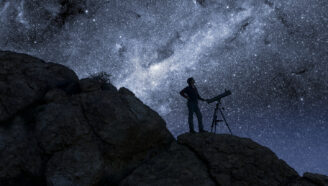 Space
SpaceExperiment: A puzzling parallax helps stargazers
In this project, we explore how perspective, or parallax, can be used to measure the distances to objects such as stars.
-
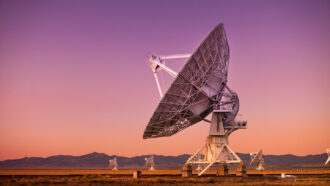 Physics
PhysicsScientists Say: Radio Waves
Lightning, stars, supermassive black holes and more give off radio waves.
-
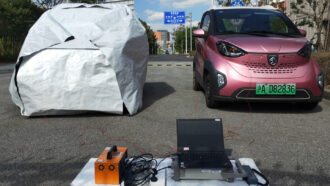 Tech
TechNew thermal ‘cloak’ keeps spaces from getting too hot or too cold
A prototype fabric could help keep cars, buildings and other spaces cooler during heat waves while also reducing greenhouse-gas emissions.
By Skyler Ware -
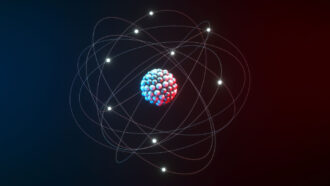 Chemistry
ChemistryScientists Say: Valence electrons
These far-out electrons do the hard work when it comes to chemical reactions.
-
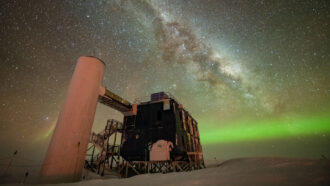 Space
SpaceGhost particles paint a new picture of the Milky Way
Scientists tracked neutrinos from space to create a new map of our galaxy. It’s the first image of the Milky Way to be made without light.